Janet Millward writes about Canadian Foodgrains Bank’s call to use climate finance funding to address food insecurity around the world.
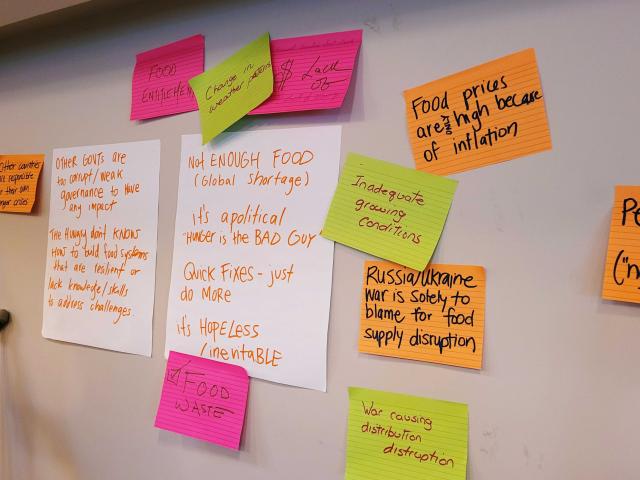
The Call
Hunger exists here in Canada and globally. I have, over several years, seen hunger expressed in the needs of Canadians who come to our local food bank in rural Ontario. During my time volunteering in Sierra Leone, I saw the effects of children suffering from poor nutrition. Here, I realized that there was a broader definition of hunger to include enough sustainable nutritious food. I also saw how a small group on the ground understanding local needs can make lasting change.
After the restrictions of the pandemic I was looking for an opportunity to make lasting change and be involved in helping to raise awareness of the problems of those who are hungry in the world and to motivate Canadians to help. I connected through The United Church of Canada website to the Canadian Foodgrains Bank (CFGB) and signed up for the Hunger on the Hill program. I prayed, talked to friends, and was accepted for this initiative. After two online meetings where I met the others involved in the program from across Canada, I travelled to Ottawa to continue learning about global food insecurity, an increasing problem due to climate change, the pandemic, and war, and preparing to meet members of Parliament.
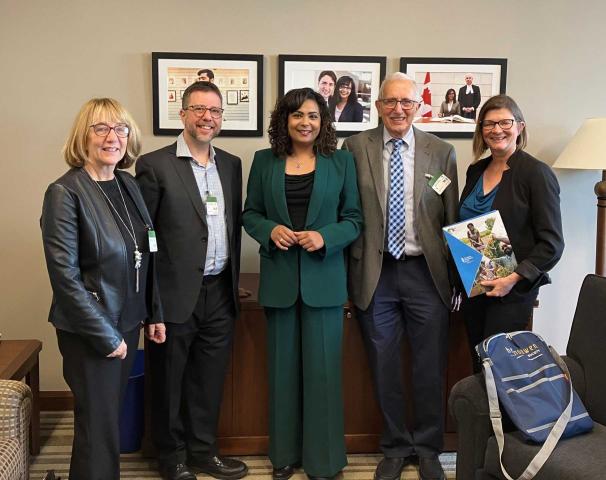
The Ask: “…tell them to use their money to do good” (1 Timothy 6:18)
The United Church of Canada is one of the founding members of the Canadian Foodgrains Bank, a Christian organization whose mission is “working to end global hunger.” For two days we started with a centring prayer exercise and then went on to learn more about the issues and the need to provide $500 million from the $5.3 billion climate finance package to support climate resilient food systems. This $5.3 billion had already been pledged by the Government of Canada at the G7 summit in 2021. The ask now is that some of the money from this climate financing package go towards supporting small-scale farmers to learn about and practice climate resilient food systems. With the significant rise in global hunger of 180 million people due to the war in Ukraine and the effects of drought and flooding, the needs are great today and are expected to increase.
The Team
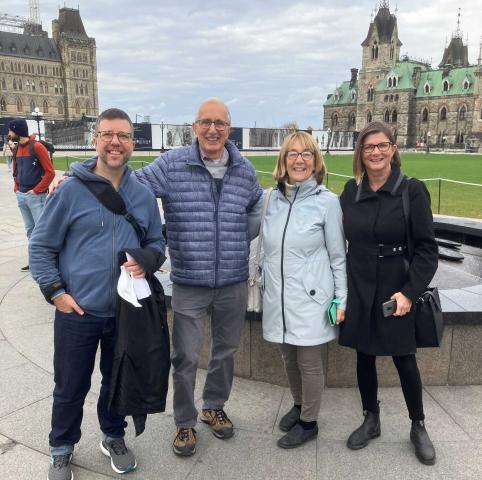
We were divided into five groups of four people, made up of one CFGB staff member and three volunteers. Each group prepared to meet with several members of Parliament. How to open the meeting was discussed with the need to be concise and not to waste their time. To be factual and provide literature about climate change, the need for resources to be provided to small-scale farmers. In our meetings with MPs, we each had an opportunity to speak. We took notes and a picture to record the moment and will follow up based on the questions asked by the MPs. The meetings we had were very positive. All MPs heard the ask, asked questions about the areas they were interested in, and were willing to step up and write letters and discuss the matter further.
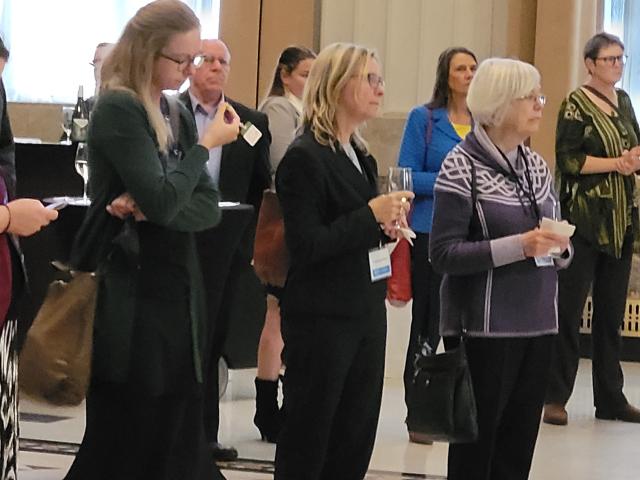
Thank You and Next Steps
At the end of the day on the Hill, we attended a reception which included a variety of people from different areas of the charity sector, all our teams and government officials, including MPs and some staff. Following that we typed out meeting notes, packed our suitcases, and returned home exhausted, but pleased that the information was well received and hopeful that a funding announcement will be made soon. Perhaps during the United Nations Climate Change Conference, COP27. Though that part of the process was in the future, we can all participate by continuing to pray for those who are hungry “until all are fed,” and by advocating for climate finance! Discussions about global hunger, the effects of climate change, and the solutions can continue too. Resources can be found at the website of the Canadian Foodgrains Bank.
And for me? The process changed me too! I now know how I can use the political process to make a difference. Life with Christ is always about growth and this experience was no different. Let’s raise our voices to end hunger.
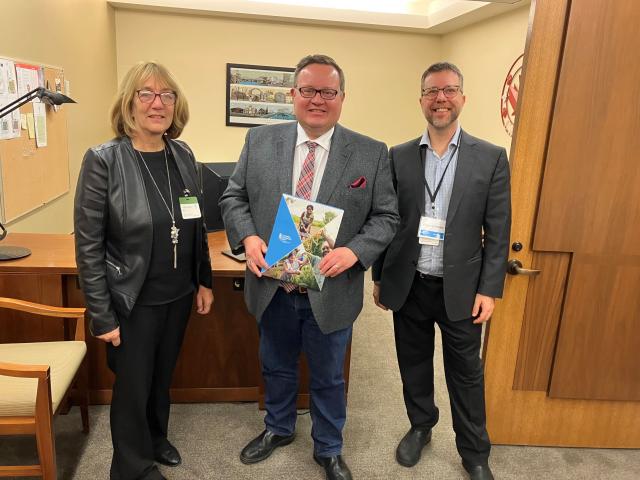
— Janet Millward of Knox United Church in Ayr, Ontario participated in the Canadian Foodgrains Bank Hunger on the Hill program in October 2022. Advocating for climate finance in the face of climate change is a key advocacy ask. Join United Church of Canada members by attending or holding Candles for COP27 Vigils and taking action during the UN Climate Change Conference, COP27. You can send a letter to your MP through CFGB’s advocacy page.
The views contained within these blogs are personal and do not necessarily reflect those of The United Church of Canada.